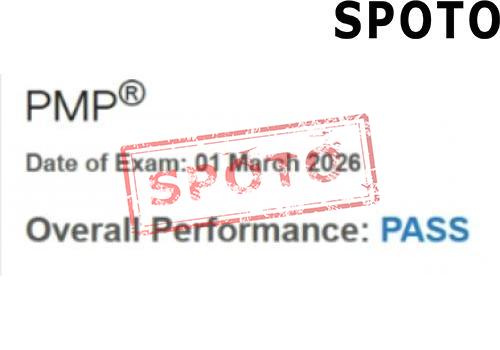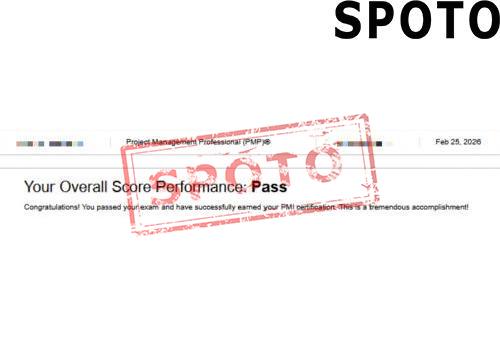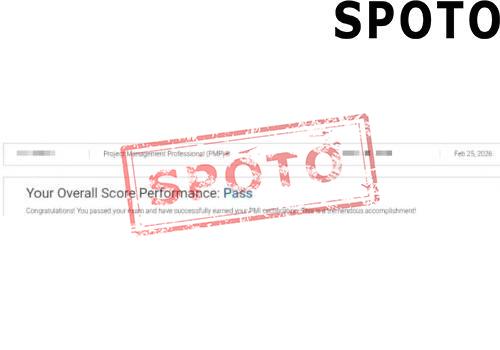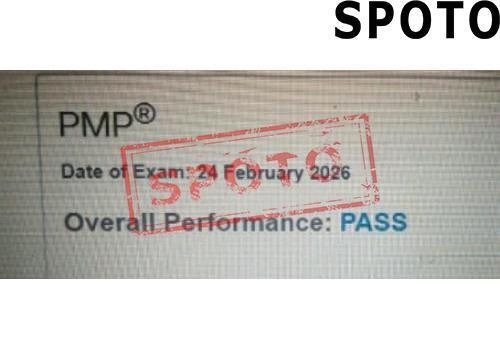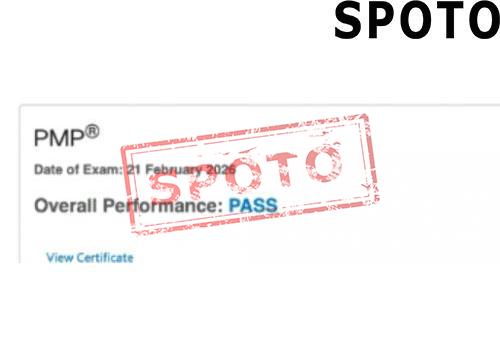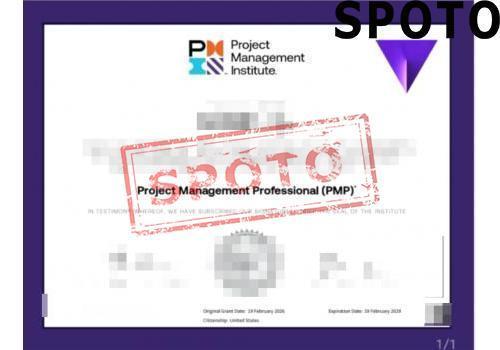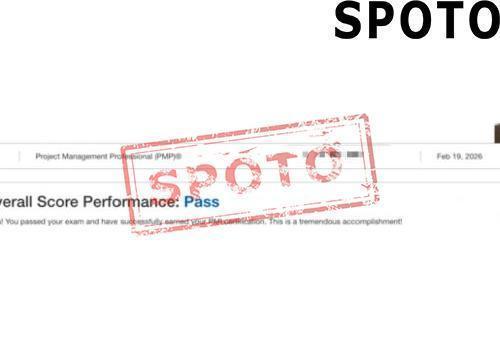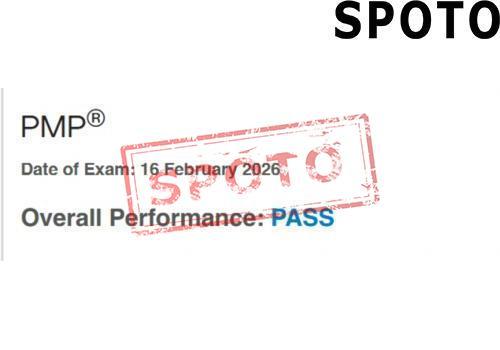
Table of Contents
According to Glassdoor, the base pay range of Project Manager Salaries is $72K - $119K/yr updated 26 Feb 2026. The job market trends for PMP certification holders show a significant advantage in securing high-paying and rewarding positions. With a PMP certification, professionals often find themselves in demand across various industries such as IT, construction, healthcare, finance, and more. The certification opens doors to roles like Project Manager, Program Manager, Portfolio Manager, and even executive positions like Chief Operating Officer (COO) or Chief Technology Officer (CTO). After obtaining PMP certification, the possibilities are vast; many people may wonder: What industry opportunities await and what types of jobs can one pursue with this prestigious certification?
What is PMP Certification
Let's delve into the realm of the PMP (Project Management Professional) Certification. Recognized worldwide and administered by the esteemed Project Management Institute (PMI), this credential signifies an individual's expertise in project management. The PMP certification showcases a professional's prowess in leading and overseeing projects effectively, establishing them as a highly skilled practitioner in the field. Attaining this prestigious certification involves meeting rigorous educational and experiential requirements, passing a comprehensive exam covering project management principles, methodologies, and best practices, and committing to ongoing professional development. Holding a PMP certification not only boosts one's professional credibility and marketability but also unveils a wealth of career opportunities across various industries globally.
What’s on PMP Exam?
The Project Management Professional (PMP) exam is a rigorous assessment designed to evaluate the competency of individuals in managing projects effectively across various industries. It covers a wide range of knowledge areas essential for successful project management. Understanding the exam's content breakdown and topics is crucial for aspirants aiming to excel in this certification. Here's a comprehensive overview of what you can expect on the PMP exam:
Exam Content Overview:
The PMP exam is structured to assess candidates' proficiency in various domains of project management, as outlined in the Project Management Institute's (PMI) Project Management Body of Knowledge (PMBOK) Guide. The exam content covers a diverse range of topics, each essential for effective project management practice.
Exam Topics:
1. Project Integration Management:
- Project Charter
- Project Management Plan
- Project Execution
- Project Monitoring and Controlling
- Project Closure
2. Project Scope Management:
- Scope Planning
- Scope Definition
- Work Breakdown Structure (WBS)
- Scope Verification
- Scope Control
3. Project Schedule Management:
- Activity Definition
- Activity Sequencing
- Activity Duration Estimating
- Schedule Development
- Schedule Control
4. Project Cost Management:
- Cost Estimation
- Cost Budgeting
- Cost Control
5. Project Quality Management:
- Quality Planning
- Quality Assurance
- Quality Control
6. Project Resource Management:
- Resource Planning
- Resource Acquisition
- Team Development
- Team Management
7. Project Communication Management:
- Communication Planning
- Information Distribution
- Performance Reporting
- Stakeholder Management
8. Project Risk Management:
- Risk Management Planning
- Risk Identification
- Qualitative and Quantitative Risk Analysis
- Risk Response Planning
- Risk Monitoring and Control
9. Project Procurement Management:
- Procurement Planning
- Solicitation Planning
- Source Selection
- Contract Administration
- Contract Closeout
10. Stakeholder Management:
- Identify Stakeholders
- Plan Stakeholder Engagement
- Manage Stakeholder Engagement
- Monitor Stakeholder Engagement
Exam Structure:
The PMP exam is a computer-based test consisting of 180 multiple-choice questions, with approximately 6% being directed multiple-choice questions, and the remainder are 4-choice-1 single-choice questions. Additionally, each exam includes 5 unscored questions for research purposes. Candidates have 230 minutes to complete the exam. The questions are based on real-life scenarios and require candidates to apply project management principles to solve problems effectively.
Passing Score:
To pass the exam, candidates must answer at least 113 questions correctly, calculated as 60% of the total scored questions plus the 5 unscored questions (180 x 60% + 5 = 113). Achieving this passing score demonstrates proficiency in project management principles, processes, and practices, qualifying candidates for PMP certification.
What Industries for PMP Certification Holders?
According to the introduction of the PMP Certification and the exam, it is evident that the Project Management Professional (PMP) certification exam serves as a universal benchmark for assessing project management proficiency, transcending specific industry boundaries or orientations. This standardized assessment is embraced across a wide array of sectors such as IT, internet, manufacturing, automobiles, healthcare, renewable energy, finance, electronics, and engineering, among others. The widespread adoption of this certification underscores its relevance and versatility across diverse industries, positioning it as a crucial credential for ambitious project managers aspiring to excel in their respective fields. Whether one's interests lie in IT, healthcare, finance, or any other industry, acquiring expertise in project management through PMP certification opens pathways to a myriad of career prospects and ensures adeptness in managing projects effectively within their chosen sector. Therefore, for individuals aiming to establish themselves as project managers in specific industries, delving into the nuances of relevant sectors and honing project management skills through PMP certification is essential for success and professional growth.
6 Jobs You Can Do With a PMP Certification
So, what jobs can you get with a PMP certification? Holding a Project Management Professional (PMP) Certification opens doors to a wide array of rewarding career opportunities across industries. Here is an overview of job roles that individuals with a PMP Certification can pursue:
1. Project Coordinator:
- Salary: Project Coordinators with a PMP Certification typically earn between $50,000 to $80,000 per year.
- Job Content: Project Coordinators assist project managers in planning, organizing, and executing projects. They coordinate project activities, track progress, manage documentation, and facilitate communication among team members.
- Job Requirements: A PMP Certification is often preferred for Project Coordinator roles, along with strong organizational skills, attention to detail, communication abilities, and the capability to work effectively in a team environment.
2. Product Owner:
- Salary: Product Owners with a PMP Certification can command salaries ranging from $80,000 to $120,000 annually.
- Job Content: Product Owners define product vision, prioritize features, and collaborate with development teams to deliver products meeting customer needs.
- Job Requirements: Product Owners often benefit from a PMP Certification, combined with product management experience, stakeholder management skills, domain expertise, and the ability to drive product development processes effectively.
3. Project Manager Consultant:
- Salary: Project Manager Consultants holding a PMP Certification typically earn between $90,000 to $140,000 per year.
- Job Content: Project Manager Consultants offer expert guidance on project management best practices to help organizations improve project outcomes and achieve strategic objectives.
- Job Requirements: Project Manager Consultants are expected to have a PMP Certification, extensive project management experience, strong analytical skills, and the ability to provide strategic project management advice to clients.
4. Portfolio and Program Manager:
- Salary: Portfolio and Program Managers with a PMP Certification can expect salaries ranging from $90,000 to $150,000 annually.
- Job Content: Portfolio and Program Managers oversee multiple projects within a portfolio or program, aligning them with organizational goals, managing resources, and ensuring successful project delivery.
- Job Requirements: Portfolio and Program Managers typically require a PMP Certification, proven experience in managing portfolios or programs, strategic planning capabilities, and strong leadership skills.
5. Engineering Project Manager:
- Salary: Engineering Project Managers holding a PMP Certification can earn salaries ranging from $80,000 to $130,000 annually.
- Job Content: Engineering Project Managers oversee engineering projects from inception to completion, managing resources, budgets, timelines, and ensuring successful project delivery within scope and quality standards.
- Job Requirements: Engineering Project Managers should possess a PMP Certification, engineering background, project management experience in the engineering field, technical expertise, and the ability to lead cross-functional teams effectively.
6. Project Director:
- Salary: Project Directors with a PMP Certification may earn between $100,000 to $180,000 per year.
- Job Content: Project Directors provide strategic direction and leadership for project teams, ensuring projects align with organizational objectives and overseeing project delivery.
- Job Requirements: Project Directors typically need a PMP Certification, substantial project management experience, strong leadership skills, decision-making capabilities, and the ability to manage complex projects and diverse stakeholders effectively.
Get Your PMP Certification with SPOTO
If you are interested in obtaining your PMP Certification, look no further than SPOTO. Known for its accuracy and reliability, SPOTO offers 2024 updated PMP exam dumps and exceptional customer service to support your certification journey. With SPOTO's assistance and guidance, you can confidently prepare for and pass your PMP exam with a 100% success rate. Take the first step towards achieving your PMP Certification by contacting SPOTO today for a seamless and effective exam preparation experience.

